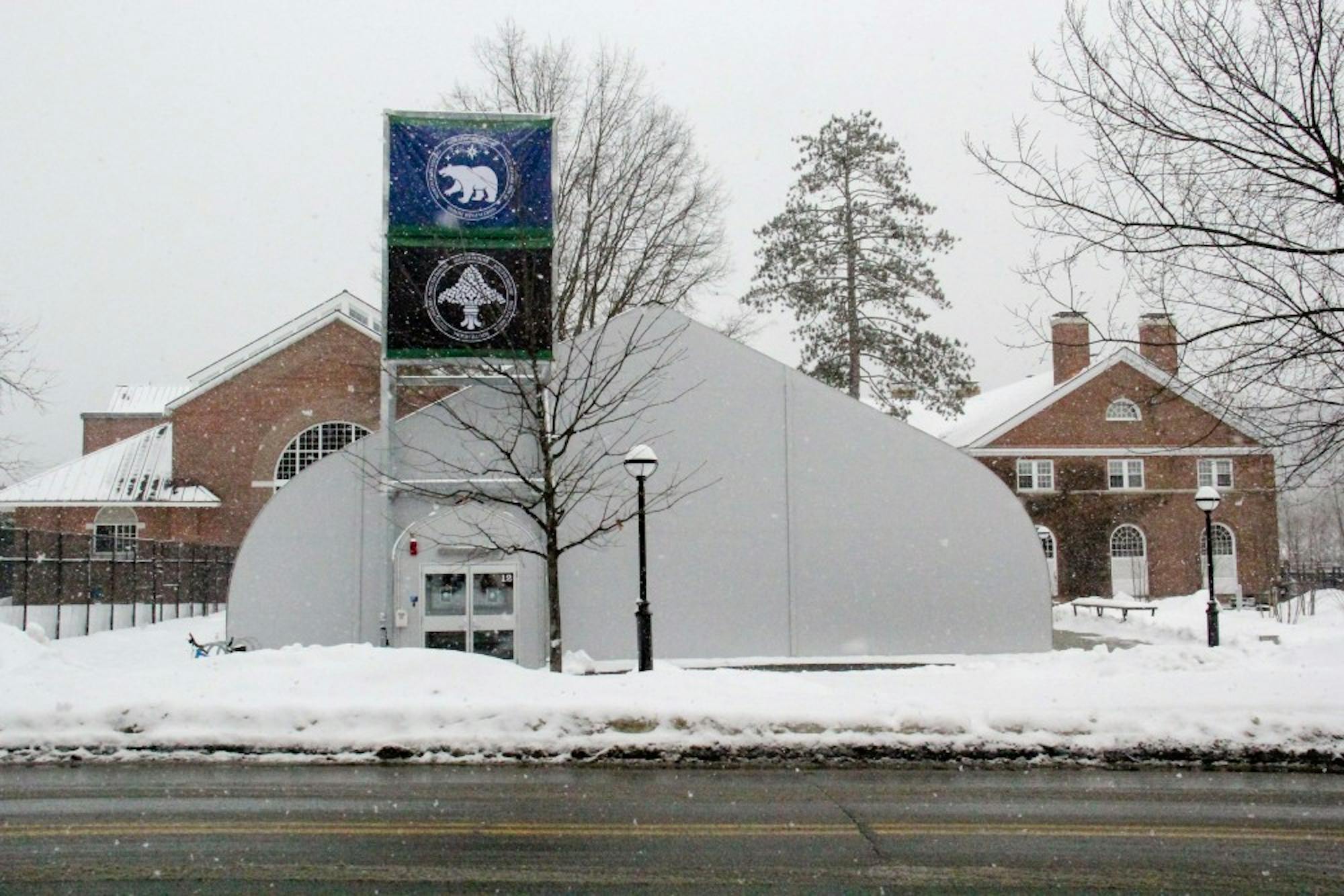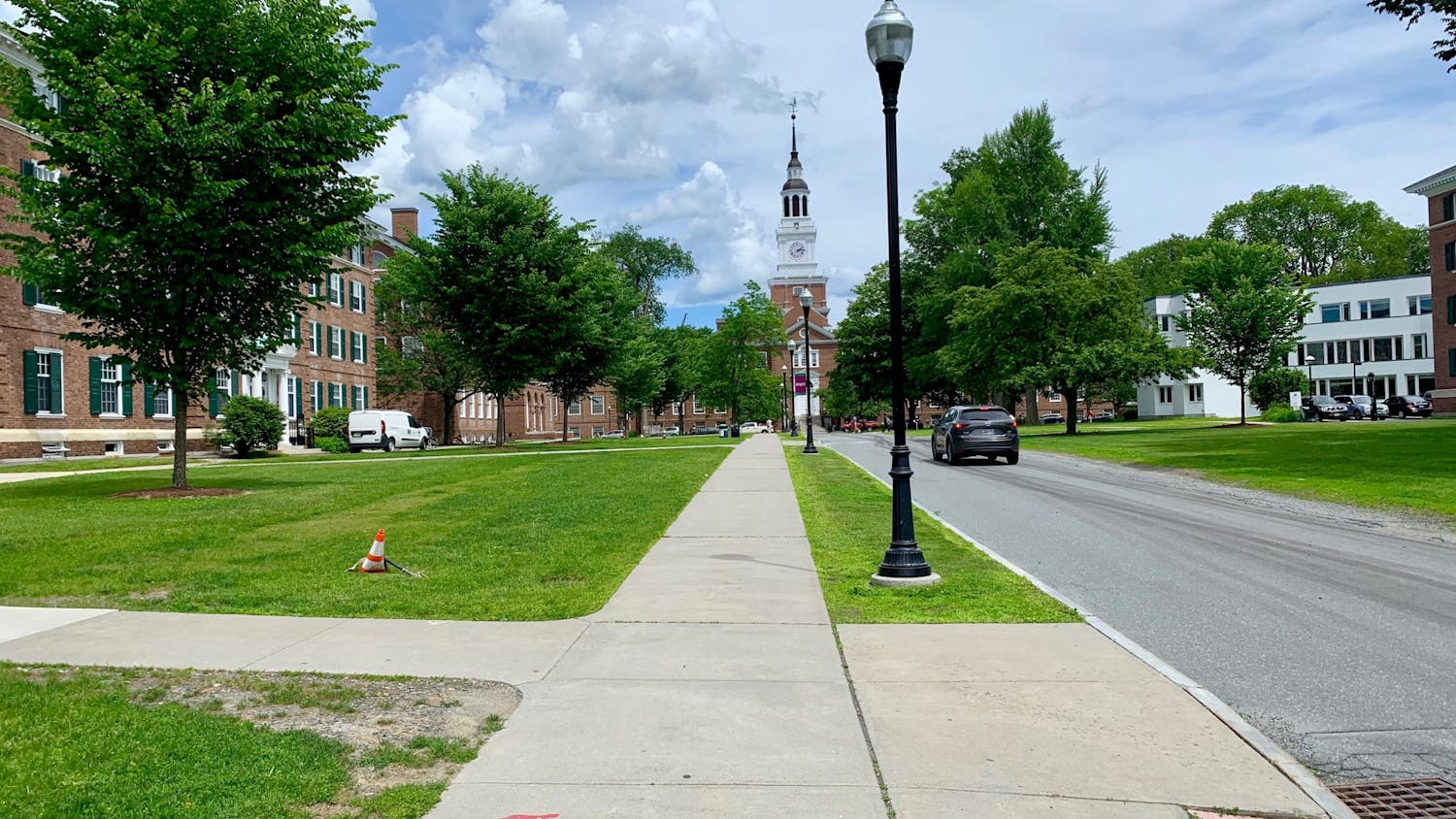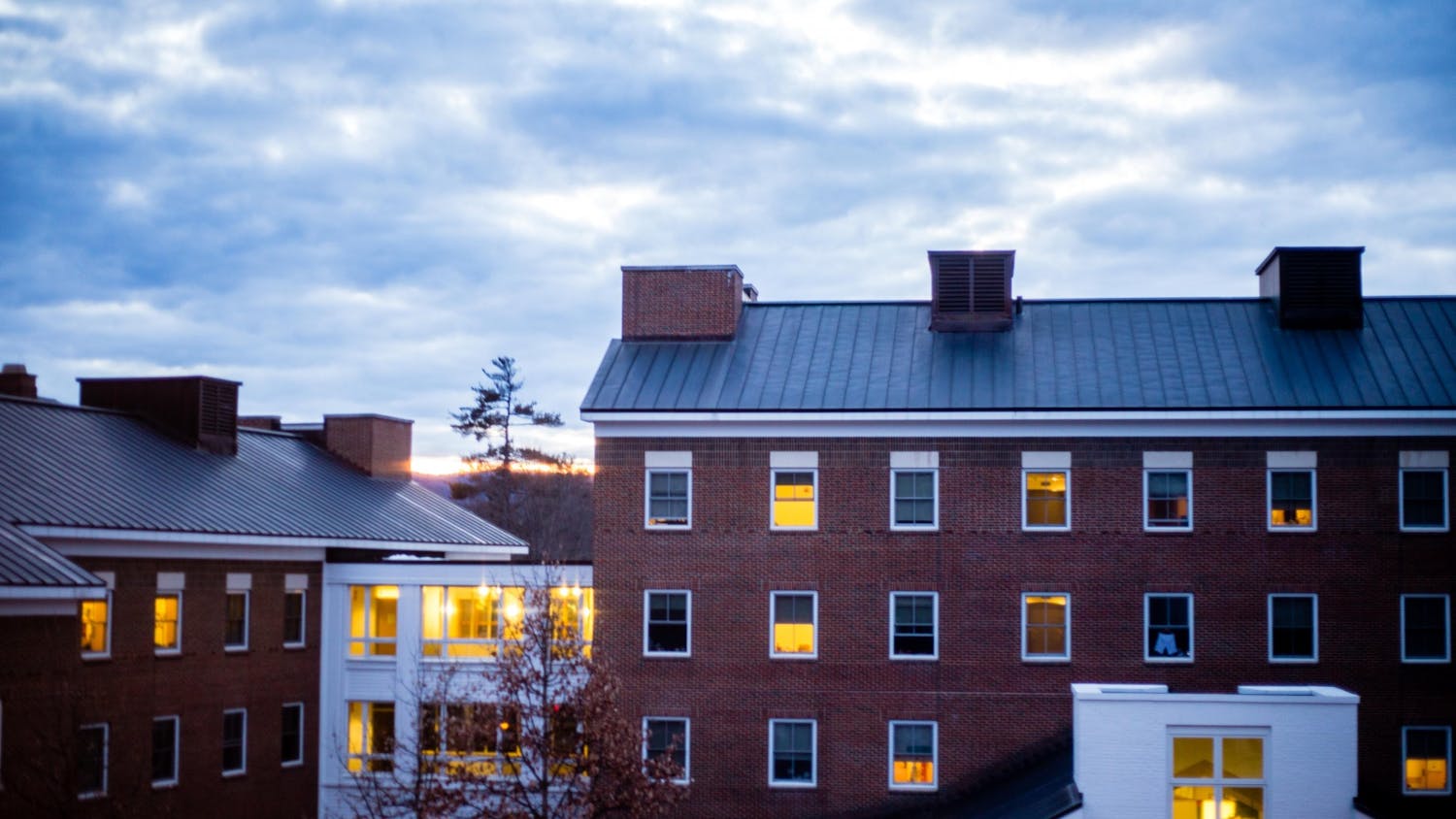Following the release of Dartmouth’s reopening plan last week, students have raised questions about the housing options on the College’s campus. According to director of campus planning Joanna Whitcomb, all new projects related to the construction and renovation of undergraduate residences are on hold.
These suspended housing projects include the planned construction of a 350-bed dormitory at the intersection of Crosby and East Wheelock streets — currently home to three tennis courts and House Center A, commonly known as “the Onion” — and the potential renovation and expansion of the Choates and East Wheelock residential clusters.
Meanwhile, other construction projects at the west end of campus continued this spring, including the construction of a new engineering, computer science and entrepreneurship facility adjacent to the current Thayer School of Engineering building.
In September 2018, the Board of Trustees voted to proceed with the schematic design phase for the construction of the 350-bed dormitory. The Board also voted in March to explore the renovation and expansion of the Choates dormitories, allocating $3 million to its planning and schematic design phase, according to a message sent out to Choates undergraduate advisors in March by the cluster's assistant director of residential education Andy Vacca.
According to Hanover town manager Julia Griffin, the College has not yet submitted plans to the town for either of these projects.
“My sense is that the project is not at a point where the College is ready to move forward in terms of scheduling preliminary scoping meetings with town staff to look at infrastructure issues and to really begin to hone in on detailed plans," Griffin said.
The Office of Residential Life did not respond to requests for comment.
Dartmouth’s on-campus housing has become a topic of discussion following the College’s June 29 email to the Dartmouth community, which announced a plan to bring back more than half of undergraduate students for fall term. Under the plan, students will be allowed to spend two terms on campus over the next four terms, while spending the remaining one or two terms enrolled in online classes.
In the announcement, College President Phil Hanlon and Provost Joseph Helble identified the “challenge of determining how to accommodate the same number of students with what are, in effect, fewer available beds and classroom space.”
According to College archivist and records manager Peter Carini, the College’s D-Plan arose out of a lack of student housing availability, after Dartmouth became a co-educational institution.
“When [Dartmouth] announced that the institution would go co-ed, they also stated that no male applicants would be displaced by female applicants,” Carini said. “This was done to placate older alumni who were opposed to coeducation. This meant that the College had to add several hundred students to its roster that year. They did not have the time or finances available to build additional housing, so they instituted the D-Plan to limit the number of students on campus and in dormitories in any one term.”
With the term set to begin on September 14, Maxwell, Channing Cox, the Lodge, the Choates and River cluster dorms have been designated for “self-isolation and quarantine needs,” amounting to 522 private, single sleeping spaces per the floor plans published on ORL’s website.
The College said that it plans to pre-order and deliver food for self-quarantined students, but no further information has yet been provided regarding the logistics of admitting, housing, and caring for infected students. Students not under self-quarantine will be housed in singles and two-room doubles.
In an email statement to The Dartmouth, Dean of the College Kathryn Lively said that the College had initially considered using “local hotel and temporary housing options” for student housing, but that they were “not viable” for the 2020-2021 academic year.
According to Griffin, the College has not reached out to the town about housing students in either the Hanover Inn or the Six South Street Hotel. Griffin also mentioned that the College offered its own housing facilities to first responders when cases were rising in New Hampshire, although they were not ultimately used.
While the College works to welcome students back to campus, Griffin said that the town is more concerned about students living off campus, highlighting the difficulty of ensuring that those living in off-campus residences manage themselves well from a public health standpoint.
"We've got a few hundred students here [this summer], and we've had lots of complaints from residents about students congesting the Wilson's landing docks, congested use of the Kendal Riverfront Park dock [and] late night partying off Maple Street," Griffin wrote.
Griffin added that, although not all of these students are necessarily Dartmouth students, she has observed that the largest number of people downtown without face coverings have been young adults.
"I pushed the College not to allow any students to live off-campus this coming year, because it's the off-campus student behavior that has the potential most negative ramifications for Hanover residents," Griffin said, adding that she is concerned about students returning from countries and states with a high number of COVID-19 cases.
Moving forward, Griffin said that the town will be setting up meetings with the College to discuss the enforcement of safe public health practices off-campus.





